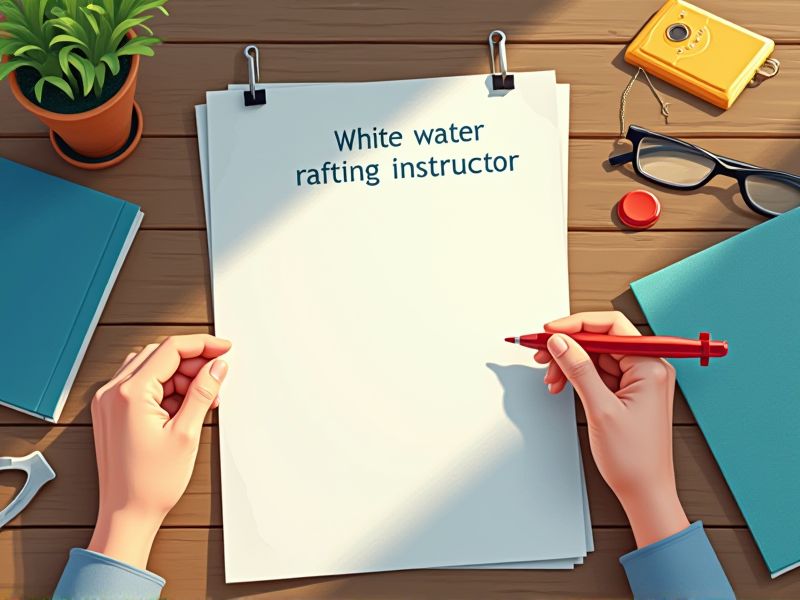
White water rafting instructors are responsible for the safety and enjoyment of their clients, necessitating specialized skills to navigate unpredictable river conditions. Proper certifications ensure that these instructors possess the essential knowledge in rescue techniques and first aid, crucial for responding to emergencies. These qualifications are also vital in gaining the trust of clients who rely on professional guidance in such high-risk activities. Here are key certifications required for aspiring white water rafting instructors.
American Canoe Association (ACA) Whitewater Rafting Instructor Certification
The American Canoe Association Whitewater Rafting Instructor Certification ensures standardized safety practices, which reduces the risk of accidents during rafting activities. Certification provides instructors with validated teaching techniques that enhance the learning experience for participants. Instructors with ACA certification are recognized for their expertise, making them more appealing to employers seeking qualified professionals. The certification process educates instructors on environmental stewardship, promoting responsible interactions with aquatic ecosystems.
International Rafting Federation (IRF) Instructor Certification
Possessing the International Rafting Federation (IRF) Instructor Certification ensures instructors have met global safety and teaching standards, which reduces risk during white water rafting. Certified instructors are trained in the latest rescue techniques and environmental stewardship, promoting safer and more sustainable rafting practices. Many rafting companies and jurisdictions require IRF certification as a minimum standard for employment, which boosts job competitiveness and opportunities. This certification enhances an instructor's credentials, building trust with clients who prioritize safety and quality instruction.
Red Cross Wilderness First Aid Certification
White water rafting often occurs in remote areas where immediate medical assistance is not available; the Red Cross Wilderness First Aid Certification equips instructors with necessary lifesaving skills. White water rafting involves high-risk activities with potential for injury, making advanced first aid knowledge crucial for safety. Certification ensures instructors can effectively respond to emergencies, minimizing harm and ensuring a safe experience for participants. The program teaches risk management and decision-making in wilderness contexts, aligning with the unpredictable nature of rafting environments.
Wilderness First Responder Certification
Wilderness First Responder Certification provides white water rafting instructors with essential skills to manage medical emergencies in remote, challenging environments. This training ensures they can effectively stabilize injuries and illnesses until professional help arrives, enhancing the safety of all participants. Possessing this certification reinforces the instructor's credibility and reassures clients of their commitment to safety protocols. In high-risk situations like white water rafting, having a certified responder can significantly reduce the risk of fatalities or severe injuries.
Swiftwater Rescue Technician Certification
Swiftwater Rescue Technician Certification equips a whitewater rafting instructor with the skills to safely manage emergency situations. It ensures instructors can effectively perform rescue operations in fast-moving water, enhancing participant safety. Knowledge gained from the certification enables rapid decision-making and hazard identification. Ultimately, it boosts credibility and trust among clients and regulatory bodies.
Professional Raft Guide Certification
Certification ensures that a professional raft guide possesses the skills necessary for the safety of participants in white water rafting. It provides standardized training that helps manage diverse water conditions and emergencies effectively. Certified guides are likely to be more knowledgeable about environmental factors, reducing risks related to unpredictable water currents. Certification often acts as a measure of trust and reliability for both participants and tour operators.
River Safety and Rescue Certification
White water rafting involves navigating unpredictable and turbulent river conditions, increasing the risk of accidents. River Safety and Rescue Certification equips instructors with essential skills to manage emergencies, ensuring safety for all participants. Certification ensures instructors can effectively perform rescues, mitigating potential injuries or fatalities. Proper training enhances the credibility and professionalism of instructors, attracting more customers to the rafting service.
Advanced CPR and AED Certification
White water rafting often occurs in remote locations where emergency medical services may have delayed response times, increasing the need for onsite advanced CPR and AED skills. Swiftwater environments can lead to drowning or cardiac incidents, necessitating proficient emergency care from instructors. Advanced certification enhances an instructor's ability to manage life-threatening situations, improving safety outcomes for participants. Regulatory agencies may require such certifications to meet industry safety standards, ensuring protection for both clients and operators.
National Outdoor Leadership School (NOLS) Wilderness Emergency Medical Technician Certification
White water rafting instructors often face remote and unpredictable environments; the NOLS Wilderness Emergency Medical Technician Certification equips them with the skills needed to handle medical emergencies. This certification provides specialized training for assessing injuries and providing immediate care in wilderness settings, which is critical for maintaining safety on the water. The curriculum emphasizes decision-making and problem-solving under pressure, which aids instructors in managing crises effectively. Completing this certification demonstrates a commitment to the highest safety standards, reassuring clients and employers of their preparedness in hazardous situations.
White Water Rafting Risk Management Training Certification
White water rafting involves navigating unpredictable and potentially dangerous river rapids, thus requiring instructors to possess comprehensive risk management skills. A White Water Rafting Risk Management Training Certification equips instructors with the ability to assess and mitigate hazards, ensuring participants' safety. Certified instructors can make informed decisions in emergency situations, reducing the likelihood of accidents. Training instills confidence in both instructors and participants, increasing the overall trust in and reputation of rafting operations.
Summary
When you receive certifications as a white water rafting instructor, your credibility and trustworthiness among clients increase. Certified instructors often gain access to higher-paying positions and job security due to recognized competency. Employers frequently prioritize certified individuals when hiring or promoting, enhancing career opportunities. Safety measures improve significantly, reducing the risk of accidents, which positively impacts client satisfaction and retention.
